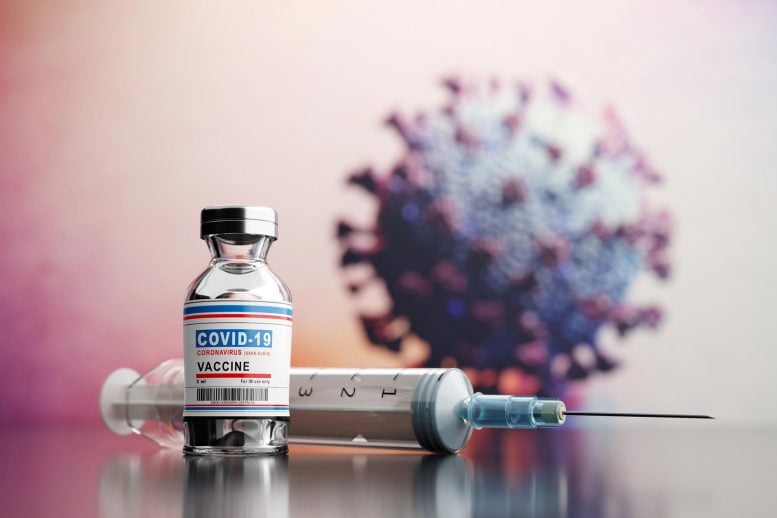
Breakthrough infections from the Delta variant are going up.
As breakthrough infections rise from the highly contagious Delta variant of the coronavirus, the precise risk to the fully vaccinated may be confusing.
Northwestern Medicine experts explain why the number of breakthrough infections from the Delta variant are going up, who is at risk and why you may need to take extra precautions depending on your age.
Who gets breakthrough infections?
Dr. Robert Murphy: “The vaccine is about 90% effective against the Delta variant, so one person in 10 who gets vaccinated and is exposed to SARS-CoV-2 will have a breakthrough infection. Anybody is at risk for it, not just the immune-compromised. It’s athletes. It’s totally healthy people. Certainly, the immune-compromised are at a higher risk because they can’t mount a strong enough immunologic response to the vaccine. Older people may also have a weaker response to the vaccine.
“The end game is most people who get breakthrough infections either have very mild symptoms or no symptoms. They rarely end up in the hospital, and they don’t die.
“The big question is how infectious are they? That’s what we are trying to find out.”
Murphy is the site leader at Northwestern along with Drs. Chad Achenbach and Claudia Hawkins in a study with the University of Illinois at Champaign and Johns Hopkins investigating the infectiousness of vaccinated students who got COVID-19 infections. Results are expected in the next one to two months.
Are we seeing more breakthrough infections from the Delta variant?
Carnethon: “We are seeing breakthrough infections and while we know that no vaccine is 100% effective, it feels frightening. However, infections will happen and the reassuring thing is that most of the breakthrough infections are not causing severe illness and death. We aren’t sure why the rate of infections — both new and breakthrough — appears to be picking up.
“One concern is the Delta variant is evading the vaccines. Another concern is any virus that causes a high viral load would break through vaccine protection — and there is evidence that the delta variant does cause higher viral loads earlier in the course of infection. We will never get away from these concerns because the virus will continue to mutate itself into new variants so long as it circulates in the population, and the biggest space it has to circulate is among the unvaccinated.”
Do we need to change our behavior now that the Delta variant is the main source of breakthrough infections?
Dr. Benjamin Singer: “In places with high vaccination rates and low community transmission, you do not need to change your behavior. Of course, vaccinated people may still choose to wear masks if they or someone in their household contact is at particularly high risk.
“But in places with low vaccination rates and high community transmission, I think it makes clear sense to add back masking when you are indoors as an additional layer of protection from a more contagious variant.
“Delta is a more contagious variant than previous SARS-CoV-2 variants and has a weak ability to evade vaccine immunity, at least among those who are only partially vaccinated with one dose of an mRNA vaccine. Hence, breakthrough infections may be more common with Delta.”
Mercedes Carnethon: “The Delta variant won’t change my behavior in a community where the test positivity rate remains low, which signals low community transmission. However, at this time I would not choose to travel to a hotspot. But if I had to go, I would wear my mask and try to avoid large groups of people. I would not take unvaccinated family members to a current hot spot or family members who are vaccinated but who remain vulnerable due to age or other conditions.”
“I have been following local guidance regarding mask-wearing and so feel comfortable indoors without a mask. The reason I have not returned to indoor mask-wearing in public spaces is because breakthrough infections have largely been minimally symptomatic or asymptomatic.
“If we have hit a wall on encouraging adults to vaccinate, then as a society, we have to shift our mindset to treating this as another endemic virus that is going to infect people every year just as the other coronaviruses that cause the common cold do each year. When a virus becomes endemic and infects and re-infects people over time, it does become less virulent with time. The number of unvaccinated individuals who are hospitalized right now with this new variant demonstrates that it is not yet mild and harmless.”
“Even still, operating under the same level of fear as we were last spring isn’t sustainable. It is also not necessary when we have considerable evidence that most vaccinated individuals who contract the illness do recover. There are still unknowns about long-term risks from infection or long-term COVID, but I can’t personally sustain that level of worry and anxiety over unknowns. I suspect many adults feel the same way. I have taken all the necessary precautions, but I won’t do dumb things like running around in a hot spot with no mask indoors.”
Should your behavior change if you are an older adult?
Carnethon: “All vulnerable individuals, either due to age or pre-existing conditions, should take precautions because if they are infected or re-infected it may not be a mild illness. The highest rates of mortality consistently have been older adults, which is traditionally defined as 65 and older. However, the risks for severe illness go up with each decade of life, and there is no age cutoff where the risk of illness is significantly lower. There are 40-year-olds with the health profiles that we know are associated with severe illness — obesity, diabetes, uncontrolled hypertension, cancer, or pre-existing heart disease. Those individuals, regardless of their age, are just as vulnerable as older adults and should also take precautions.”
About the experts
Dr. Robert Murphy is executive director of the Institute for Global Health at Northwestern University Feinberg School of Medicine.
Mercedes Carnethon, vice chair of preventive medicine at Feinberg.
Dr. Benjamin Singer, assistant professor of medicine in pulmonary and critical care at Feinberg.









All the variants have different spike proteins, with Delta having one that is more efficient at getting around the vaccines. But the real problem is in the virus and why two of the most dangerous, MERS and Covid-19, are so infectious. My independent research has found multiple one-in-a-million nucleotide sequence matches between all the coronaviruses and the human genome. Those sequences are the same as some of the DHU loops of human tRNA. Using those loops and their anticodon matches, viruses may be able to fool the nucleus membrane in cells to allow the virus to enter and associate with the human DNA, creating more opportunities for further infection. Our immune system may be compromised and may no longer be able to stop the virus and other diseases from attacking organs throughout the body. Vaccines that attack the virus protein shells while ignoring their contents are doomed to failure from the Darwin effect, but recognizing these DHU loops suggests a possible approach to successful coronavirus vaccines. For MERS, eliminating the nucleotide sequence CAGTGGTAG from the virus may make it less infectious and stimulate the body to create antibodies to attack the entire virus. And eliminating the nucleotide sequence TAGTGGTGAG from Covid-19 may do the same thing. Only the infection process is considered in my work, not the innate virulence of the virus. For more info, check out this YouTube, Coronavirus – Using Your DNA Against You. https://www.youtube.com/watch?v=pd4OD4GpsJI
Do I need to get a referral from Rand Paul to see you, doc?